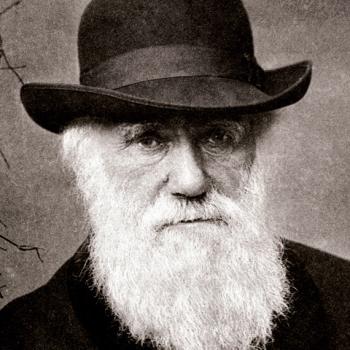When Americans paused to observe the eleventh anniversary of the 9/11 terrorist attacks, an international incident arose as a film trailer mocking Muhammad and Islam allegedly sparked protests that began in Egypt, spilled over into Libya, and spread to over twenty nations. In addition to the controversial nature of the trailer, it has connections to an evangelical ministry and a controversial pastor, both known for using inflammatory approaches to Muslims and other religions.
Of course, nothing justifies terrorism and violence, not even a film that is alleged to have raised Muslim hostilities around the world, even if it wasn't created with this intent. But these international events provide evangelicals with an opportunity for reflection on our actions and inaction in regard to interreligious engagement. If we're willing to engage in critical self-reflection, evangelicals will acknowledge that in the years since 9/11 few of us have done much to improve interreligious understanding.
To their credit, some evangelicals did get involved in sending well wishes to the Sikhs who lost loved ones in August's gurdwara shooting in Wisconsin. And other evangelicals showed support for Muslims whose mosque was torched in Missouri. But where have large segments of evangelicalism been in response to these recent events, or in interreligious engagement as a result of 9/11? Given the work of evangelicalism in pressing cultural issues, why isn't interreligious engagement on our social agenda? And why, for the most part, have evangelical leaders been conspicuously absent in regards to interreligious engagement? Perhaps it is a combination of indifference plus fear of the fallout when they do try to get involved. When Rick Warren worked alongside the Muslim community in Southern California, evangelicals attacked him for advancing "Chrislam," a syncretistic hybrid of Christianity and Islam.
Evangelicals should consider whether the actions of some of their coreligionists, as well as the inaction of the majority of us, have contributed to a state of international affairs that is in many ways little better than it was on the day the towers fell.
Nevertheless, there are signs of a positive trend, as a growing number of evangelicals have rethought their assumptions. Interreligious engagement need not be threatening to our self-understanding, and our faith-identity need not be constructed with a sense of hostility toward other religious traditions. Instead, more positive and encouraging activities have been taking place across the spectrum of evangelicalism, from conservative to progressive. Evangelical scholars like Bob Robinson, in his book Jesus and the Religions, have revisited the Scriptures and found biblical precedent for interreligious conversations, including Jesus' interactions with Gentiles and Samaritans. Evangelicals are approaching the Bible in new ways and discovering that, understood in balance, it provides support for positive interreligious engagement.
As I wrote recently for another publication, in the example of Jesus, "he broke with the negative assumptions, attitudes, and practices of his religious community concerning those in other religions. Second, Jesus positively engaged those of other religions by exhibiting respect rather than denunciation. Third, his engagement involved an awareness of the religion and culture of his dialogue partners. Fourth, Jesus engaged in mutual interaction through dialogical exchange that included listening as well as evangelistic proclamation." If Christians are to have the mind of Christ (Phil. 2:5), and remember that "whoever claims to live in him must live as Jesus did" (1 John 2:6), then we must emulate the model of Jesus for the church as we engage those in other religions.
In another example, in response to the recent protests overseas, the National Association of Evangelicals issued a public statement decrying not only the violence, but also the film that has been implicated in the uprisings. Joining them, groups like The New Evangelical Partnership for the Common Good also called on evangelicals to work within their ranks to diminish their community's culpability in religious violence.
And as coincidence would have it, the same week the uprisings began in the Middle East, Rick Love and Peace Catalyst International were holding their Evangelicals for Peace Conference. This gathering in Washington, D.C. brought together evangelicals from a number of perspectives all united in making an impact through Jesus-centered forms of peacemaking around the world.
Brian McLaren should also be cited as another example within the spectrum of evangelicals who has contributed in this area. His new book, Why Did Jesus, Moses, the Buddha, and Mohammed Cross the Road?, raises important questions and suggests new ways forward, including the reformulation of Christian identities, still strongly based in Christ, but moving away from hostility toward other religions in identities that seek to extend benevolence. Pastor Bob Roberts and his Global Faith Forum is also helping bring evangelicals together with those in other religions, providing a helpful model for evangelical interreligious engagement.




